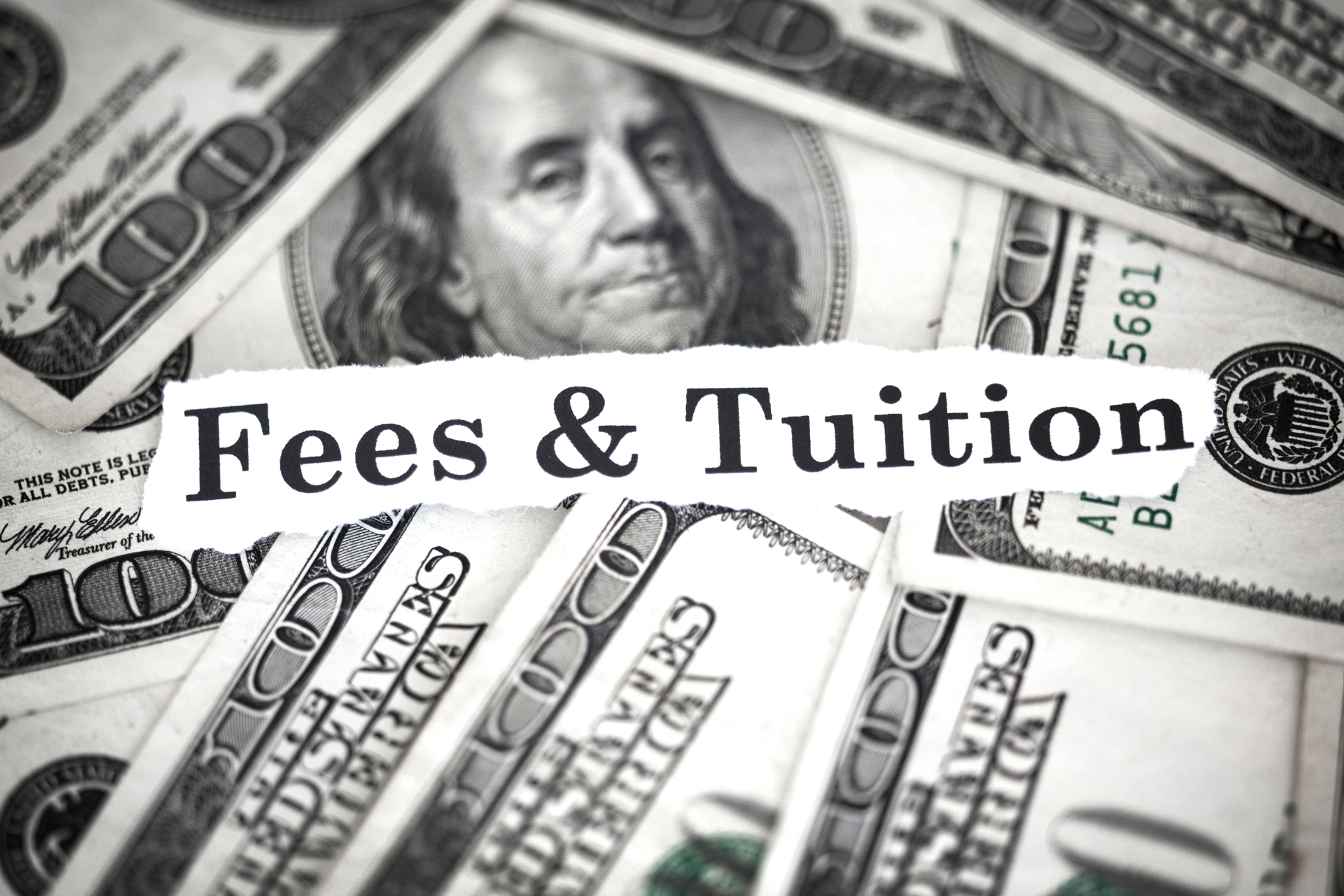
Table of Contents
Thinking about getting an MBA? One of the biggest questions on your mind is probably the cost. Business school isn't cheap, but how much will you really pay?
The answer depends on where you go, whether you choose an online MBA or an on-campus MBA program, and other factors like living expenses and extra fees. Some schools charge over $200,000 for a full-time MBA program, while others are more affordable.
But tuition isn’t the only thing to consider. The total cost includes housing, food, books, and even health insurance. There are also ways to save money, like scholarships, employer sponsorships, and federal loans.
So, is an MBA worth it? That depends on your career goals and what you’ll earn after graduation. Let’s break it all down, from MBA program cost to financial aid options, so you can decide if it's the right move for you.
The Average Cost of an MBA in 2025
MBA costs keep rising, but how much will you actually pay in 2025? The annual cost of an MBA program depends on the school, whether it’s a full-time MBA or an online MBA, and extra expenses like living expenses and health insurance.
Some top-ranked schools charge six figures, while others offer more affordable options. The total cost includes tuition and fees, housing, and even personal costs.
Let’s take a closer look at what an MBA program really costs and what impacts the price.
How Much Does an MBA Cost on Average?
The average cost of an MBA program varies. Tuition alone can be anywhere from $60,000 to over $200,000. But tuition isn’t everything, you also have to budget for housing, personal expenses, and health fees.
- A full-time MBA at a top-ranked school like Harvard Business School or Columbia Business School can cost over $100,000.
- Online MBA programs tend to be cheaper, with tuition starting at around $20,000.
- Out-of-state students often pay higher costs than in-state students for public business schools.
- Two-year programs cost more overall than shorter programs.
The total cost also depends on whether you’re studying in a big city or a smaller town. If you’re in a major city, expect higher costs for on-campus housing and living expenses.
Costs of Top-Ranked MBA Programs in the U.S.
| Business School | Annual Tuition | Living Expenses/Personal Expenses | Health Insurance | Food & Housing | Total Cost |
| Harvard Business School | $76,410 | $8,320 (9 Months) | $4,202 | $23,400 | $118,854 |
| Columbia Business School | $88,300 | $3,177 | $4,955 | $27,396 | $132,258 |
| Stanford Graduate School of Business | $82,455 | $19,008 (Personal, rent, and food included) | $7,620 | $20,880 (Housing only) | $130,746 |
| University of Pennsylvania (Wharton) | $84,830 | $33,804 | $4,412 | - | $127,716 |
| Chicago Booth | $84,198 | $7,250 | - | $26,010 | $125,937 |
| MIT Sloan | $83,405 | $7,308 | $3,603 | $23,490 | $133,116 |
| Northwestern (Kellogg) | $83,610 | $3,600 | $6,975 | $28,200 | $125,191 |
These are estimates. The total cost includes tuition and fees, living expenses, health insurance, and additional costs.
Read: What is an MBA Degree? An Expert Guide (2024)
What Impacts MBA Tuition Costs?
Several factors affect the MBA program cost:
- School Reputation – Top-ranked schools charge higher costs due to demand.
- Full-Time vs. Online Programs – Online MBA programs usually have a lower annual cost than full-time MBA programs.
- Location – Studying in a big city means higher living expenses and on-campus housing costs.
- Out-of-State Students – Public business schools often charge out-of-state students more tuition.
- Program Length – A two-year program costs more than shorter MBAs.
- Additional Fees – These include health fees, technology fees, and student activity fees.
Other Costs of an MBA (Beyond Tuition)
Tuition is just one part of the cost. You also have to think about living expenses, personal expenses, and other additional costs. Let’s break it down.
Cost of Living & Housing Expenses
- Rent & Housing – On-campus housing might be available, but most MBA students rent apartments.
- Food & Groceries – Costs vary depending on location and lifestyle.
- Transportation – Public transport, gas, or car expenses add up.
- Health Insurance – Many schools require health insurance, which can cost thousands per year.
- Personal Expenses – Gym, entertainment, travel, and other day-to-day costs.
Additional Fees & Expenses
- Tuition and Fees – This includes annual tuition, course materials, and university charges.
- Technology Fees – Some online programs charge extra for virtual learning tools.
- Health Fees – Some schools charge health fees on top of insurance.
- Student Activity Fees – Covers clubs, networking events, and career services.
- Study Abroad Programs – Optional, but can be expensive.
Read: 4 Expert Tips on Paying for Business School
Financial Aid & Ways to Reduce MBA Costs
The good news? There are ways to save money on your MBA investment. Let’s look at some options.
MBA Scholarships & Grants
Many schools offer scholarships based on merit, financial need, or diversity. Unlike loans, you don’t have to pay them back.
- Merit-Based Scholarships – Awarded to students with strong academics or leadership experience.
- Need-Based Grants – Based on financial need, helping cover tuition.
- Industry-Specific Scholarships – Some companies and organizations fund MBA students.
Applying early and researching available scholarships can reduce your total cost.
Learn more here: MBA Scholarships for the Top 10 MBA Programs
Employer Sponsorship & Tuition Reimbursement
Some companies help employees pay for an MBA program. If your job offers tuition reimbursement, you could get part or all of your annual tuition covered.
- Full Sponsorship – Some companies cover the full-time MBA cost if you return to work for them.
- Partial Reimbursement – Your employer may reimburse part of your tuition.
- Work-Study Programs – Some business schools offer teaching or research assistantships.
Check if your employer supports MBA students through these programs.
Student Loans & Financing Options
If you don’t have savings or sponsorships, loans can help cover tuition and fees.
- Federal Loans – Government-backed loans with lower interest rates.
- Private Loans – Offered by banks or lenders but may have higher rates.
- Income-Share Agreements – You pay a portion of your salary after graduating.
- Employer-Backed Financing – Some companies offer loan assistance.
Compare options carefully to find the best way to finance your MBA investment.
MBA Cost vs. ROI: Is It Worth It?
So, after spending thousands on an MBA program, what’s the return? Does an MBA investment actually pay off?
The key is looking at post-graduation earnings. Let’s explore.
Average MBA Salary & Post-Graduation Earnings
MBA grads often see a big salary jump. Here’s what to expect:
- Top Business Schools – Graduates from Harvard Business School or Columbia Business School can earn over $150,000 per year.
- Online MBA Programs – Some graduates see smaller but still valuable salary increases.
- Industry Matters – Finance, consulting, and tech MBAs tend to earn more.
- Experience Counts – The more work experience you have, the bigger the salary boost.
According to labor statistics, MBA grads often double their pre-MBA salary within a few years.
Read: Is an MBA Worth It? Pros, Cons, and How to Decide
Final Thoughts: Is an MBA Worth the Cost in 2025?
An MBA program is expensive, but it can also open doors. Whether it's worth it depends on your goals, the total cost, and your potential earnings after graduation.
If you choose a full-time MBA at a top-ranked school, expect higher costs but also higher salaries. If you're looking for a more affordable option, online MBA programs can offer great value.
At the end of the day, an MBA journey is a personal choice. Weigh the annual cost, job prospects, and financing options. If the numbers make sense, an MBA investment can pay off in the long run.
FAQs
Here are some frequently asked questions about MBA costs:
How much does it cost to get an MBA?
- The total cost of an MBA program varies widely, typically ranging from $50,000 to over $200,000. Top-tier business schools often charge more than $100,000 for tuition alone, while more affordable options, such as online MBA programs, can cost under $20,000.
Which MBA is the cheapest?
- Some of the most affordable MBA programs are found at public universities and online MBA programs. Online programs can cost as little as $10,000 to $30,000, while state schools often have lower tuition for in-state students. Accelerated two-year programs or part-time MBAs can also reduce the total cost compared to a full-time MBA.
How much does a Harvard MBA cost?
- The Harvard Business School MBA program is one of the most expensive, with an estimated annual tuition of $76,000. The total cost for two years, including living expenses, health insurance, and fees, is around $150,000 to $170,000.
How do online MBA programs compare in cost to traditional on-campus programs?
- Online MBA programs can be a more affordable option, as they eliminate costs associated with living expenses, transportation, and on-campus fees. These programs typically charge between $20,000 and $80,000 in tuition fees.
Are there accelerated MBA programs that cost less due to shorter duration?
- Yes, some schools offer accelerated MBA programs that can be completed in less time, potentially reducing costs. For example, Gardner-Webb University offers a 10-month MBA program costing $665 per credit hour, totaling approximately $19,950 for the 30-credit program.
What additional costs should I consider beyond tuition?
- Beyond tuition, students should budget for living expenses, health insurance, books, and other associated costs.
How can I finance my MBA education?
- Financing options include scholarships, federal and private loans, graduate assistantships, and employer sponsorships. It's advisable to explore all available options to ease the financial burden.
Do MBA graduates see a significant return on investment (ROI)?
- Many MBA graduates experience a substantial salary increase post-graduation. According to a survey conducted by the Graduate Management Admission Council, the median base salary for MBA graduates in the United States was $115,000 in 2020, representing a significant increase over the median base salary of $85,000 for bachelor's degree holders in business.
Are there differences in cost between full-time, part-time, and online MBA programs?
- Yes, full-time MBA programs are generally more expensive, with tuition costs ranging from $70,000 to over $200,000.Part-time programs allow students to continue working and spread the cost over a longer period, with tuition fees ranging from $30,000 to $150,000. Online MBA programs can be more affordable, typically charging between $20,000 and $80,000 in tuition fees.


















